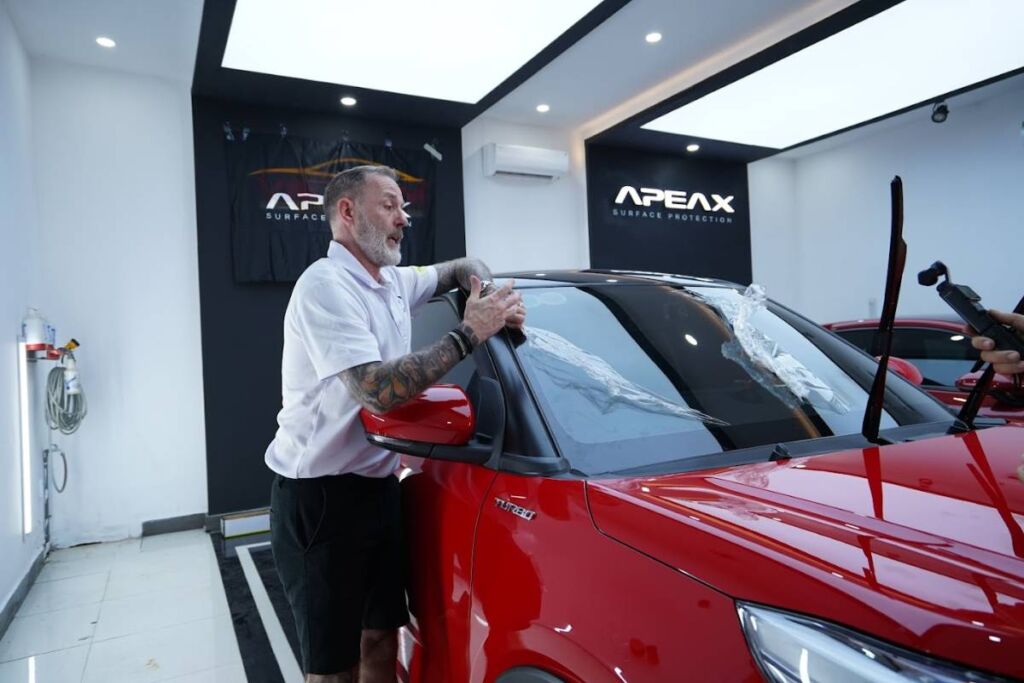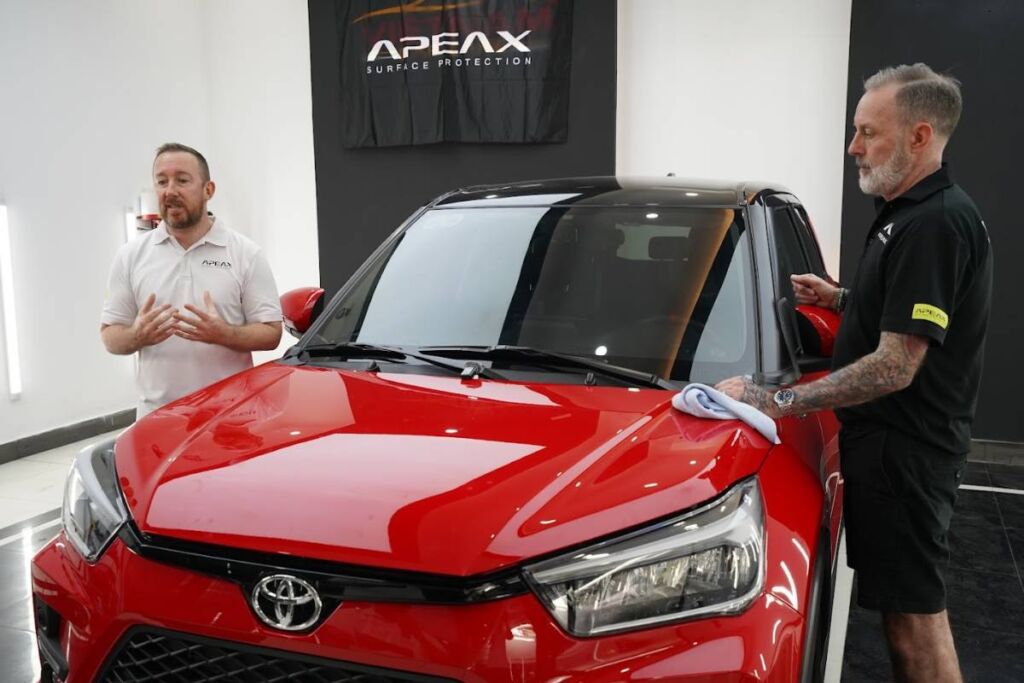When it comes to protecting your vehicle, one of the smartest upgrades you can make is investing in windshield protection film. But not all films are created equal. Between different materials, varying levels of clarity, thickness options, and installation challenges, it can be hard to know which product truly delivers the performance and protection you’re looking for.
Whether you’re an installer searching for the best solution for your clients or a vehicle owner who wants to avoid costly windshield replacements, understanding how to choose the right film is key.
In this guide, we break down the most important factors to consider — so you can make an informed decision and get the protection you need without the headaches.

1. Why Windshield Protection Film Quality Matters
The windshield is one of the most exposed and vulnerable parts of any vehicle. Every day, it faces:
- Flying debris and rock chips
- Harsh weather, UV rays, and road grime
- Impacts from hail, bird strikes, or falling objects
Repairing or replacing a windshield (especially one with ADAS sensors) can cost thousands. A high-quality protection film can prevent these issues before they start — but only if you choose the right product.
The wrong film might:
- Yellow or peel within months
- Create visual distortion
- Interfere with rain sensors or cameras
- Fail to prevent real damage
That’s why understanding what makes a good windshield protection film is critical.
2. TPU vs. PET: Why Material Choice Matters
The first major difference between films is the material used. The two most common options are TPU (Thermoplastic Polyurethane) and PET (Polyethylene Terephthalate).
| Feature | TPU | PET |
| Flexibility | High (conforms to curved surfaces) | Low (rigid, harder to apply) |
| Impact Resistance | Excellent | Moderate |
| Self-Healing Capability | Often self-healing | Rarely self-healing |
| Durability | Superior long-term performance | Lower resistance to cracking and yellowing |
| Optical Clarity | High | Moderate |
TPU films like Apeax OptiShield are the preferred choice for premium windshield protection. They provide flexibility, durability, and superior impact resistance, making them ideal for both curved windshields and high-end applications.
3. Thickness and Impact Resistance: How Much is Enough?
Thickness is another crucial factor. Films typically range from 4mil to 8mil, with thicker films offering better protection against rock chips and impacts.
- Thinner films (4-5mil) may offer basic scratch resistance but won’t prevent serious damage.
- Thicker films (6.5-8mil) absorb more energy, reducing the chance of chips and cracks.
For real-world performance, a film like Apeax OptiShield, at 6.5mil thickness, hits the sweet spot between flexibility and robust protection — making it ideal for daily driving conditions without being overly difficult to install.
4. Optical Clarity: Don’t Sacrifice Visibility
Visibility is everything when it comes to driving safety. Poor-quality films may:
- Create a hazy, blurry effect
- Add distortion or shimmer
- Make night driving unsafe
Look for films that offer:
- High optical clarity with zero distortion
- Compatibility with polarized sunglasses
- Full function with ADAS systems and rain sensors
OptiShield is engineered using premium German TPU and adhesives to maintain exceptional optical clarity, ensuring that once the film is applied, it’s practically invisible — except for the protection it provides.

5. Hydrophobic Performance: Easier Maintenance, Safer Driving
A top-performing windshield film should also offer hydrophobic (water-repellent) properties. This means water beads up and rolls off the surface, improving visibility during rain and making cleaning easier.
Benefits of hydrophobic coatings:
- Better water runoff = clearer vision in bad weather
- Less use of windshield wipers
- Reduced dirt and grime build-up
OptiShield is known for being extremely hydrophobic, providing not just protection from impact but also a self-cleaning effect that reduces maintenance for vehicle owners.
6. Warranty and Longevity: Protect Your Investment
Always check the warranty terms before choosing a windshield film. Lower-quality films often peel, bubble, or yellow within a year — leaving you (or your customer) frustrated.
A solid product should come with:
- A minimum 2–3 year warranty
- Coverage against yellowing, cracking, peeling, and bubbling
- Proven track record of durability in real-world conditions
OptiShield offers a 3-year warranty, giving peace of mind that the product will perform as promised.
7. Installation Time and Ease: Faster is Better for Everyone
The time it takes to install the film can significantly affect your business if you’re an installer — or your convenience if you’re the customer.
- Complicated, rigid films may take over an hour to install.
- Flexible TPU films like OptiShield are designed for fast installation — typically 10 to 15 minutes per windshield.
- Faster installation means lower labor costs and more cars serviced per day for shops.
Make sure the film you choose has an adhesive system that allows for repositioning during installation but locks securely once set.
8. ADAS Compatibility: Sensor-Safe Protection
Many modern vehicles use Advanced Driver Assistance Systems (ADAS), with cameras and sensors often mounted near or on the windshield. Using the wrong film can interfere with these systems, reducing safety or triggering recalibration needs.
Look for films that:
- Are optically clear enough not to disrupt sensors
- Have been tested for ADAS compatibility
- Are easy to remove without damaging sensors during future servicing
Read more:
Discover the Benefits of Apeax Xtreme OptiShield: Premium Windshield Protection Film
Top 5 Benefits of Windshield Protection Film
OptiShield’s high clarity and stable adhesive make it an ideal choice for vehicles equipped with ADAS.
📩 Get in touch at [email protected] to receive product details, pricing, and exclusive launch offers.
Want to learn more about premium windshield protection? Discover how Apeax OptiShield checks every box for performance, clarity, and ease of use — coming to the USA in May 2025.
Contact us at [email protected] or visit apeax.com to get product details, pricing, and exclusive launch offers.


